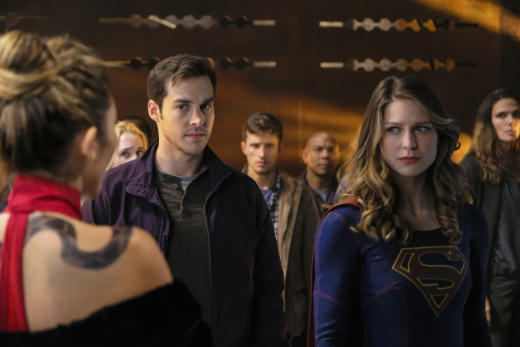At first, And the
Eternal Question feels like a straightforward attempt at a fresh twist on vampirical
themes through a naturalised religious setting, and indeed does, but embeds a
beautiful examination of the psychological battle of a brain tumour sufferer. Krisha
McCoy’s (2009) Brain Tumour: Boarding an
Emotional Rollercoaster article analyses the emotions felt by Cassandra and
why they are so varied.
The audience is
introduced to a case of self-combustion which instantly questions the force
behind the eventuality of supernatural pressures dictating the death of
specific individuals. As Cassandra glances at the
obscene innocence of her tumour, her instant refusal to fight cleverly justifies
her personal investigation into a resort run by vampires, where the combustion victims are used a test subjects.
This is a personal
story, bravely inquiring into the resort’s treatment of terminally ill
residents and questioning the mental cruelty of hope being a false claim, a realistic
exploration of a real dilemma far more fascinating to witness when Cassandra meets
vampire bio-engineer- Estrella, who has an eclectic understanding of her situation.
The acceptance of
her death is a difficult notion to understand because I wandered why she had
given up so easily, the simple reasoning behind her decision was she was
terrified. Her emotional journey reflects isolation being at the cause of her
denial, but her capability to continue her investigation and use her
intelligence to solve the case is a wonderful expression of human resilience.
Throughout the episode,
she veers towards denial then bargaining with Estrella over whether immortality would
be an unconventional path that may be the eternal question that the writers' wanted to ask.
Lindy Booth’s
naturalistic and raw performance seamlessly splits between Cassandra’s
excitable and childlike enthusiasm to a grieving woman who has accepted her
impending death. The exchange between the two facades is an impressive skill
and ultimately reveals how her intentions change; from denying her true
feelings with false excitement to achieving justice for the dead residents.
While the episode’s
focus is, dark and moving, the other librarians- Jacob and Ezekiel balance the
story’s themes with team quarrels and unavoidable capture. Their pre-conceived
notions of vampires juxtapose Cassandra’s open-minded view. Dr Belisa Vranich’s
(2010) Why we love vampires: The
Psychology behind the obsession reveals psychological justification for why
vampirical themes are commonly used.
The compelling
factors assimilate from who to believe as the owner of the resort, Estrella’s
mother, explains the land’s gift motivated her and her children to live freely
with their abilities without the need to stretch their vampirical instincts.
The mystery of the orchestrator’s identity is brilliantly and subtly revealed
by Cassandra, who observes Estrella’s brother-Tomas overwhelming curiosity into the
real source of their freedom.
The relationship
formed between Cassandra and Estrella lays the foundations for a diverse and
unique relationship which is an alluring reflection of what a peaceful society
would look like when people are accepted for who they are. Aaron Anson’s Huffington Post (2011) Coping with our judgmental society article
provides detail into why society’s judgmental attitudes create
non-productivity and prejudice.
Writer’s Katie
Rodrick and Nicole Ranadive have showcased spectacular qualities storytelling, using
supernatural themes to guide a character’s acceptance of their diagnosis, where
they remind us that you can still be scared and survive. The episode is a
remarkable adoption of bravery, intrinsically complex emotions and a romantic
acceptance of immortality.







